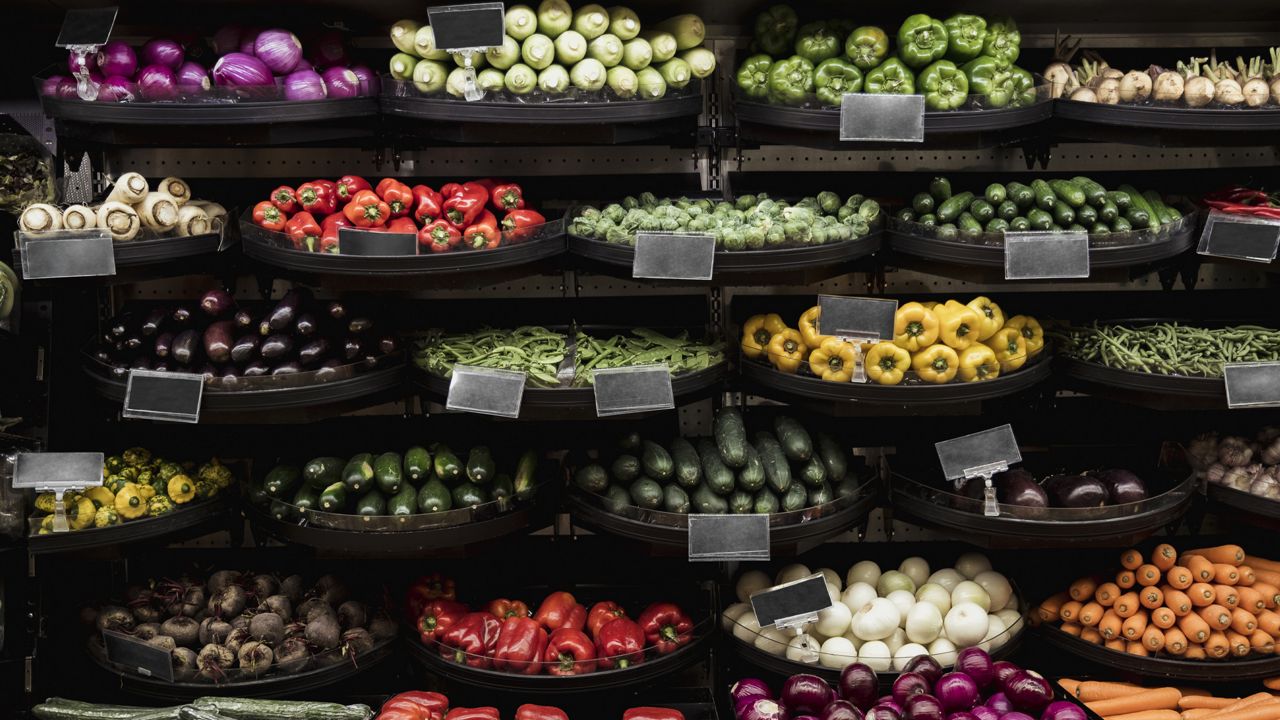There are oh so many fad diets to keep up with nowadays, but certain foods could help reduce some of the wheezing and sneezing this spring.
Allergy sufferers are in for a long and brutal season this year. Not only did it get an early start for some, but parts of the country already saw or will soon see pollen counts reach record-high levels.
While allergy medication ultimately provides the most relief from symptoms, some studies claim that a few dietary adjustments could alleviate some of your seasonal sniffles.
Check out the slideshow to see the best foods for fighting allergies.
1. Fruits and veggies. This one seems to be a staple in most diets, but there's a good reason. Many of our fruits and veggies are packed vitamins and nutrients that can reduce inflammation caused by allergens.
In particular, vitamin C gives your immune system a boost- and that’s especially needed during allergy season. After all, an allergic reaction is an immune response, so it’s imperative to support your immune system even more when the pollen counts soar.
A study performed by a team of researchers in Germany found high doses of vitamin C helped ease allergy symptoms.
Because of its high antioxidant and anti-inflammatory properties, vitamin C can regulate histamine levels and reduce inflammation. So loading up on citrus fruit, tomatoes, strawberries and other produce high in vitamin C is a good idea.
2. Probiotics are a pro- and all the more reason to love Greek yogurt, if you’re a fan. Probiotics not only help the gut, but could also play a role in reducing inflammation caused by allergies.
3. Certain fish are a great catch, including fatty fish like salmon and sardines. Both are high in omega-3 fatty acids, another natural anti-inflammatory.
4. A bit of spice makes everything nice. Certain spices can “clear your sinuses out”, so to speak, and that helps combat congestion. Adding some ginger or spicy condiments such as mustard or wasabi to a dish could at least help temporarily clear nasal passages.
5. Try out tea for a change. Not all teas carry benefits, but some do, like nettle and green tea. Along with soothing the post-nasal drip and throat irritation, certain teas contain high antioxidants and anti-inflammatory properties.
Although moderation is key. Caffeine in coffee also contains histamines and can also dehydrate you quicker. Those dependent on multiple cups of Joe per day may want to find another alternative, like pairing green tea and honey.
7. Drink more water. Water is always a must, but it is even more important during the allergy season. Staying hydrated with water not only increases the body functionality, but limits histamine production. Also, allergy medication can dry you out, so it's imperative to make sure you are taking enough in.
While Greek yogurt provides some allergy-combating benefits, most cheeses and other dairy products can contain histamines, which will only exacerbate symptoms. With that, milky substances can make mucus thicker, which can worsen congestion and make it more difficult to breathe.
Red meats and bread are also on the thumbs down list, along with sugar and other highly processed food. All of which increase inflammation with the body.
As for beverages, avoid diuretic drinks that could further dehydrate the body. This includes coffee and the happy hour cocktails.
Avoid drinking alcohol until symptoms subside, especially for those taking medication. But those who aren’t on meds should also hold off if they feel allergy symptoms coming on. Alcohol contains histamine, which could make symptoms worse.
One other thing to note: using locally sourced honey to ease allergy symptoms is a myth. That said, adding honey to your cup of tea won't make your allergies worse.
The AAFA explained in a report that the pollen used to create honey isn't the same pollen causes allergies. As a result, ingesting spoonfuls of honey will not make you more immune to pollen strains causing the issue.
Increasing in your daily intake of fruit and veggies has its advantages. But not for those with Oral Allergy Syndrome (OAS), which could become worse when pollen counts become high.
According to the American Academy of Allergy Asthma and Immunology (AAAAI), those who are sensitive to specific types of pollen may also discover a food allergy toward certain raw fruits and vegetables.
This is because the proteins making up that fruit or vegetable are like the pollen proteins that are the allergen.
When you ingest the fruit or vegetable, the body thinks it is being invaded with by the allergen itself, and thus, reacts.
Interestingly enough, many OAS sufferers find that when they cook the raw fruit or vegetable, they no longer get an allergic reaction from it.
Our team of meteorologists dives deep into the science of weather and breaks down timely weather data and information. To view more weather and climate stories, check out our weather blogs section.
Shawnie Caslin - Digital Meteorologist
Shawnie joined Spectrum News as a Digital Meteorologist in 2021. After discovering her love for weather as a child, she earned a Bachelor's of Science in Meteorology from Rutgers University in 2015. Prior to joining Spectrum, Shawnie worked behind the scenes at local and national networks as a meteorologist and weather graphics producer in New York City. She thoroughly enjoys working in the media and is always passionate to explore the different ways weather impacts our everyday lives.








